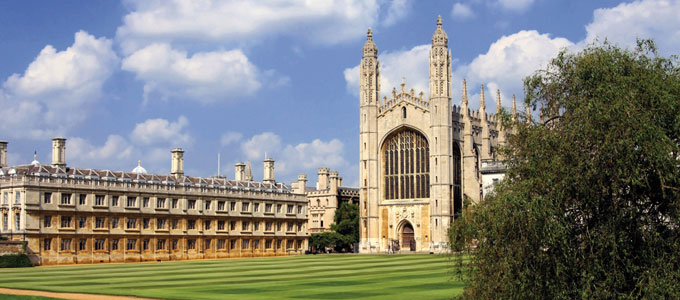Universities


Cambridge International Education
0 Colleges Available
See All
The University of Cambridge formed the ‘Local Examinations Syndicate’ over 160 years ago. Its aim was to raise standards in education by administering exams for people who were not members of the University and inspecting schools.
For the first time in 1858, 370 school candidates in 7 English cities sat exams set by the University of Cambridge. Today this has risen to more than 8 million candidates a year in 160 countries. The Syndicate began examining internationally in 1864, and this aspect of its work grew quickly.
Types of Courses:
- Primary: Courses designed for ages 5-11, focusing on foundational skills like English, math, and science.
- Secondary: Courses designed for ages 11-19, leading to globally recognized qualifications like Cambridge IGCSE, Cambridge AS & A Level, and Cambridge Pre-U.
- English as a Second Language (ESL): Courses designed for non-native English speakers to improve their language proficiency.
- Vocational: Courses designed to provide students with practical skills for specific careers.
CIE offers courses in a wide range of subject areas, including:
- Arts & Humanities: Art, Design & Technology, Drama, English Literature, History, Languages (French, Spanish, etc.), Music, Religious Studies
- Sciences: Biology, Chemistry, Physics, Computer Science, Psychology
- Mathematics: Mathematics, Further Mathematics
- Business & Economics: Business Studies, Economics, Accounting
- Other: Global Perspectives, Physical Education, Geography
Exam Levels:
- Cambridge IGCSE: The most common level for students aged 14-16, providing a solid foundation for further study.
- Cambridge AS & A Level: Advanced level qualifications typically taken by students aged 16-19, offering a thorough preparation for university.
- Cambridge Pre-U: A rigorous and challenging alternative to AS & A Level, designed for students with high academic potential.
Cambridge Assessment International Education is a provider of international qualifications, offering examinations and qualifications to 10,000 schools in more than 160 countries. It is a non-profit and non-teaching department of the University of Cambridge.
Location & Contact
How are you looking to join?
If you love sharing your thoughts, skills and notes or looking to study in depth with our experts join us now.
Do you want to join as a contributor?
Share your thought through articles and share notes to guide thousands of students in their academics.
Join NowDo you want to join as a student?
Learn the academics and professional course in depth prepared by our experts and teachers in respective field.
Register Now